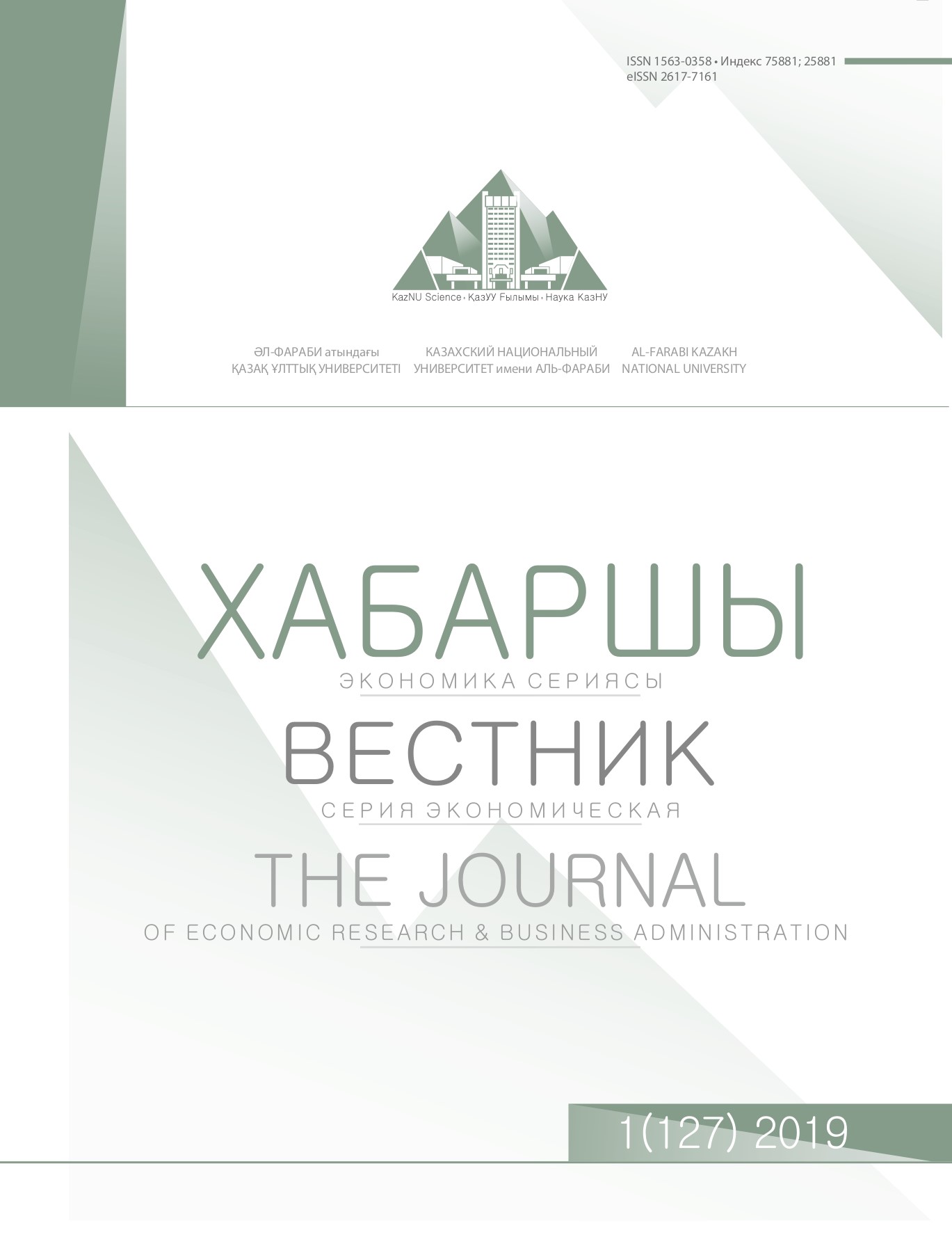Measuring transaction costs: from theory to practice
DOI:
https://doi.org/10.26577/be.2019.v127.i1.23Abstract
The article deals with the key concept of modern institutional theory – transaction costs. Currently,
the study and study of the concepts of transactions and transaction costs is given important attention.
Moreover, the constantly changing conditions and mechanisms of functioning of economic systems are
also important in the study of such issues, since they inevitably lead to the possibility of the emergence,
conclusion and execution of an expanded range of transactions, which is constantly updated and enriched
over time.
Of particular importance in the study of issues and problems of transactions, their reflection in the
accounting, take aspects of the cost measurement and evaluation of transactions in the various processes
of Contracting, in terms of contractual interactions of contractors. The existing issues of evaluation and
measurement of transaction costs are further complicated by the presence of such characteristic features
of transactions as the uncertainty factor in the conclusion and execution of the contract, which leads
to an increase in the uncertainty of transaction costs of various kinds, such as the costs of entering into
the market, the costs of increasing guarantees under contracts through hedging operations of the main
transaction.Also affect the specificity of different transaction costs, the possibility of separating from their
total set of individual elementary components, which ultimately makes them quite measurable.
A transaction-based approach can provide a significant amount of information to the economic and
financial services of an enterprise. In international practice, this is almost absolute, that is, it is clearly
understood that virtually every financial or accounting transaction is a transaction or an integral part of
a particular transaction.
In this study of the need and the possibility of measuring transaction costs, the author relies on the
Concept of integrated reporting, which combines certain types of capital, including components of social
and reputational capital.
In the course of the study, a very significant conclusion is made for the accounting system: capitalization
of transaction costs of client-forming activities that form the value of reputational capital will
significantly increase the business valuation and, at the same time, exclude from the cost of production
unusual transaction costs, which will allow only one accounting technique to increase the company’s
profit.
Turning to the very essence of transaction costs, we consider it appropriate to consider them as investment
costs involved in the process of creating business value. At the same time, we draw the reader’s
attention to the fact that on this basis transaction costs should be capitalized.













